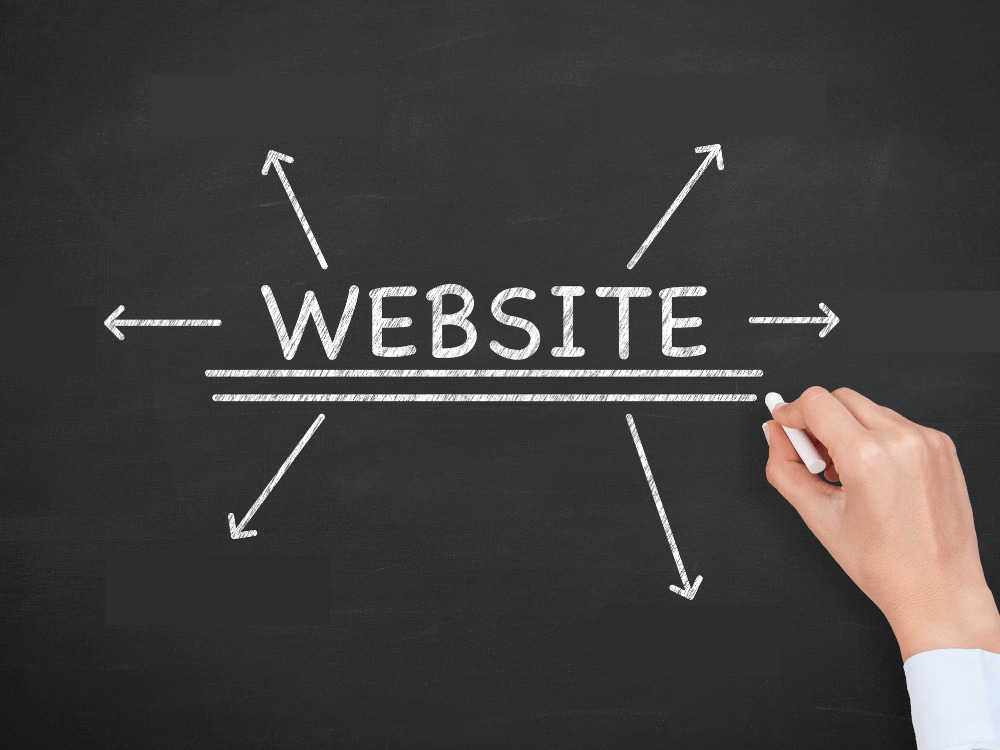
For those of us who don’t know code, have limited time, or are challenged in design, finding the best website builders that have SEO and content management capabilities are a blessing. After the very first website was published over the Internet in 1991, it didn’t take long for website editing software to make an appearance. In fact, just a few short years later in 1995, we saw the process of building a website get easier with the creation of FrontPage 1.0 and PageMill 1.0. Naturally, website builders now are far more advanced and easy to use than they were when they started.
There are over 100 website builders and not one is exactly the same. They also all don’t cater towards the same audience. Some specialize in ecommerce websites while others are specific for bloggers. This may actually be advantageous because you can immediately start eliminating a few right off the bat.
We’ve compiled a list of what we found to be the 5 best FREE website builders out there that have SEO functions and smooth content management. They are in no particular order as not everybody’s needs are the same. Some of these website platforms are excellent for certain businesses while they may be horrible for others.
Without further ado, here’s our list of the 5 best website builders:
1. Wix
Wix was founded in 2006 in Israel. It’s one of the top leading website builders on the market with over 200 million individuals and businesses in 190 different countries using it to build their websites.
With over 1000 features and constantly keeping up with the latest technology and trends, Wix allows users to expand their creativity to truly create personalized websites. Its vast design features make using Wix fun and exciting but it can eat up time for a small business owner.
Best for: Small businesses in the service industry
Pros: flexibility, huge selection of templates, vast design options
Cons: overwhelming, binding, slow speed performance
Top key features: Large app selection, simple social media integration, free SSL certificate, marketing tools to improve your audience reach and communication
SEO functionality: Very basic with free plan but has helpful, clear guides for support
Price: FREE-$49/month
For the price, you can get a stellar website that you’ll love, enjoy, and impress your visitors. It’s well worth the money if you use your time wisely and utilize the tools available. It does take some time to familiarize yourself with the backend.
2. Weebly
Weebly is a San Francisco based website builder that started in 2007. It’s a great option for individuals looking to create a professional looking website quickly but are money-conscious. Its clean and simple tool bar makes designing easy; however, it does have many limitations, even with their paid plans, that can be frustrating. This includes a gridlock for dragging and dropping items.
Best for: Startups
Pros: Simple to use, inexpensive, variety of templates to choose from, migration capabilities
Cons: limited with design customization, subpar customer support, dull app options, outdated
Top key features: You can switch themes with ease, integrated Square payment, lead capture forms, pop-up notifications
SEO functionality: Very basic and vague SEO support
Price: FREE-$26/month
Weebly may limit you in terms of building the website of your dreams but it does give you a sufficient amount of tools to still create a stellar website with additional features to grow your business or blog, especially considering the price!
3. WordPress
It’s important to note that WordPress has two platforms: wordpress.org and wordpress.com. WordPress.org is not a website builder. WordPress.org supplies the software that you can plug into your website to have more control. WordPress.com is a website builder. In regards to our findings below, we’re talking about wordpress.com.
Best for: Bloggers
Pros: Simple to navigate, mild-moderate learning curve, content details that can help with SEO
Cons: Limited on style and formatting, intimidating, backend is uninspiring
Top key features: Built in social sharing, vast option of useful plugins, easy third-party embedding capabilities
SEO functionality: On-page SEO is only available on paid plans with the options of SEO plugins that can help with analytics
Price: FREE-$45/month
If you choose to build your website on wordpress, keep in mind that a lot of the cool features and helpful tools are only available on the paid plans, such as on-page SEO, which also gives you recommendations on how to make your content better. The value that these extras bring can be well worth the upgrade.
WordPress is a leading content management system world-wide having 60% of the market share and over 500 new websites created daily on its platform. These stats make its trust factor undeniable but just because it’s a popular platform, does not mean it will be right or economically a smart choice for your needs.
4. GoDaddy
GoDaddy has been around since 1997 and is mostly known for its custom domains and being the largest web hosting company. That was until 2017 when it launched GoCentral – its extremely fast website builder. It uses ADI (artificial design intelligence) technology so, according to GoDaddy, you can create a website within an hour. It works by asking you a few questions about your business and business goals and spits out an automated website for you based on your answers.
Best for: small businesses; freelancers with simple websites
Pros: quick to set up, simple to use, excellent site speed performance, one-stop shop for domain and website
Cons: Lacks customization, lacks organization capabilities, mediocre visual appearance
Top key features: Logo builder, site backup history, automatic optimization, manageable ecommerce, bookings, and conversation reports
SEO functionality: SEO Wizard tool is only available on paid plans. The ADI will develop landing pages content, including metadata, using your chosen keywords but you can edit it.
Price: FREE-$29.99/month
It’s great for people who want a website, want it quickly, but don’t even know where to begin and are unfamiliar with designing and structuring a good website; however, if you choose a paid plan, you may want to consider opting for a different website builder like WordPress or Weebly, as you’ll get more bang for your buck.
5. Jimdo
Founded in 2007 and based in Germany, Jimdo is much like GoDaddy. It also uses ADI technology and the company claims you can have your website up and running within minutes. It’s true! Tested and proven. In fact, it only took me 3 minutes!
The big catch is, you most likely will want to fine-tune it. Considering you’re working with ADI, it spits out a generic website that really doesn’t have any personalization to it. Fine-tuning will obviously add time but not much since Jimdo lacks creative custom options.
Best for: Small local businesses; beginners
Pros: Clean designs, quick to set up, simple to use, plans are super inexpensive
Cons: Limited customization, lacks customer support, may be hard to scale your business
Top key features: Legal text created for you, Pre-made templates for blocks, Smart Apps installations, WhatsApp Chat
SEO functionality: SEO available only with its top two highest paid plans and even then it’s extremely limited. Much of it is automated. There is a simple checklist to guide you though.
Price: FREE-$42/month
You could say this is a very cost-effective way to develop a website for your business. If you’re ok with limitations and are just starting out, this may be a good way to get your feet wet. You could just set up a static website through this platform, focus your content marketing efforts on your social platforms and direct people to your website.
We hope you find our list and research helpful. Ultimately, you need to find the best website builder that is suitable for your needs and business. A few things to ask yourself when looking for a website builder is:

- “What do I need?” Is your business heavily branded where you’ll need custom editing options? Do you need a lot of storage space to add constant content, pictures, and videos?
- “What is the goal of my website?” Is it to book appointments? Is it mostly informative? Are you selling products?
- “What is my budget?” Include the cost of the website builder plan, domain, and wiggle room for needed plugins that may be extra.
- “How much time can I dedicate to building my website?” This goes hand-in-hand with your budget. You don’t want to invest in an expensive plan if you don’t have the time to work on it.
- “Is it scalable and how scalable?” If this even applies to you.
Another thing you may want to ask yourself is “Is it manageable?”, which can relate to how much time you can dedicate to your website. Managing a website and your marketing content is a fulltime job. Luckily, there’s affordable, result-driven marketing agencies, like Risely, that can do this for you.
So, what website builder do you use or have you used? Did you like it or did it discourage you from building a website? We’d love to hear your feedback! Do you recommend something different and why? Drop it in the comments!




